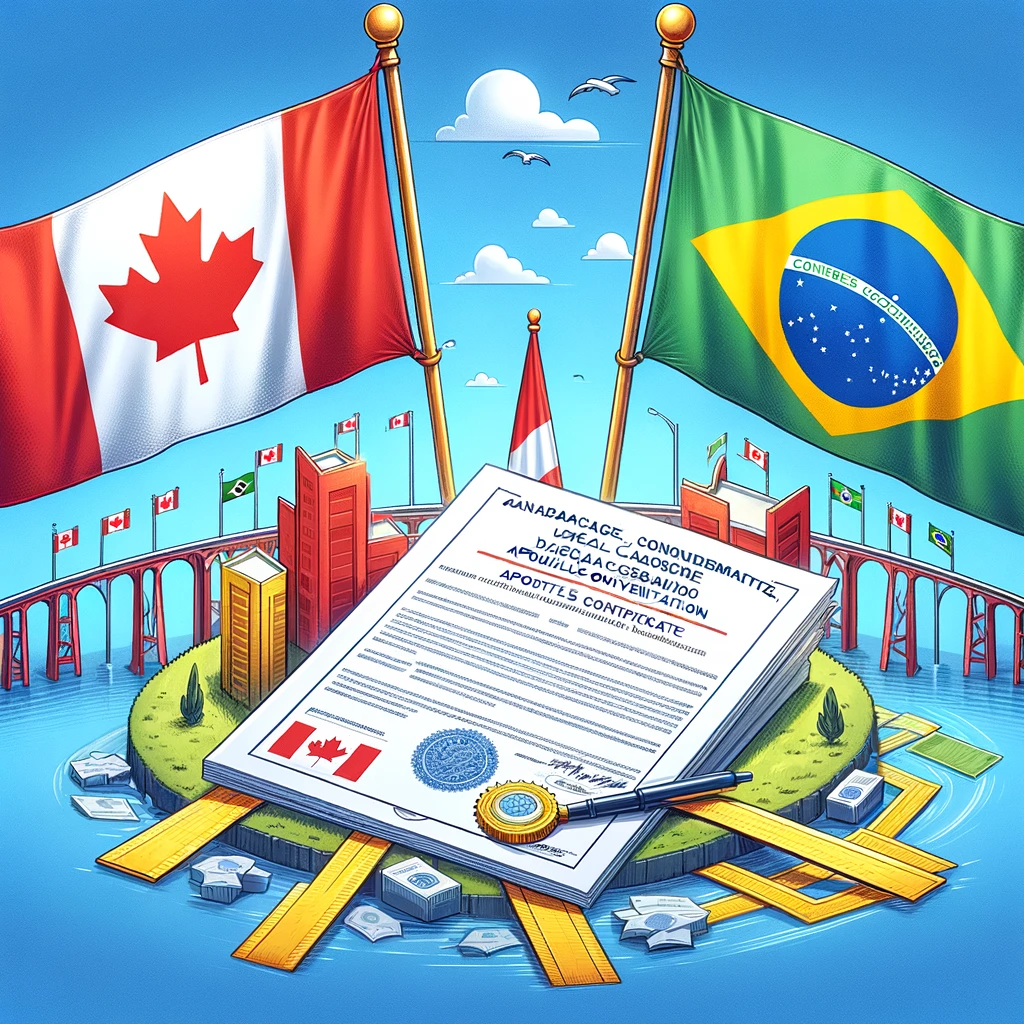Apostille Canadian Documents For Brazil
Navigating the intricate world of document authentication and legalization can be daunting, especially for those looking to use Canadian documents in Brazil. This guide simplifies the process and incorporates the significant change brought about by Canada joining the Hague Apostille Convention as of January 11, 2024. Understanding these changes is crucial for ensuring your Canadian documents are recognized in Brazil.
The Apostille Convention and Its Impact
The Apostille Convention Explained
The Apostille Convention, formally known as the Hague Convention of October 5, 1961, streamlines the legalization of documents to be used internationally. This treaty allows participating countries to issue an Apostille — a single certification making a document valid in all member countries.
Canada Joins the Apostille Convention
Excitingly, Canada's recent accession to the Apostille Convention on January 11, 2024, marks a pivotal change. For those requiring the use of Canadian documents in Brazil, this development simplifies the process significantly. As Brazil is also a member of the Apostille Convention, Canadian documents now only need an Apostille to be recognized in Brazil.
The New Simplified Process
Obtaining an Apostille in Canada
With Canada now a part of the Apostille Convention, Canadian documents for use in Brazil require only an Apostille, which can be obtained from designated Canadian authorities. This Apostille serves as a seal of authenticity, eliminating the need for the previous two-step process of authentication and legalization at the Embassy of Brazil in Ottawa.
Translations and Additional Requirements
While the Apostille ensures legal recognition, certain documents may still require translation into Portuguese, the official language of Brazil. It's essential to use certified translators for accuracy. Additionally, some documents might need notarization or other specific preparations, depending on their use in Brazil.
Practical Considerations
Types of Documents
Common documents like birth certificates, marriage certificates, educational credentials, and corporate paperwork are typically those requiring an Apostille for use in Brazil.
Validity and Acceptance
An Apostilled Canadian document should be readily accepted in Brazil. However, it's always wise to verify with the relevant Brazilian authority to confirm the document meets all specific requirements.
Frequently Asked Questions
- How Long Does Getting an Apostille Take? Time frames can vary; planning and early application are advisable.
- Can I Apostille Documents in Brazil? No, the Apostille must be obtained in Canada for Canadian documents.
- Expedited Apostille Services: Reputable service providers can often expedite the Apostille process.
- Do All Documents Need an Apostille? This depends on the document's purpose and the Brazilian authority's requirements. It’s best to check beforehand.
- Validity Period of Apostilled Documents: This varies by document type and Brazilian authority. Confirm with the relevant agency for accurate information.
Conclusion: Trust the Experts @ Global Document Solutions
With Canada’s entry into the Hague Apostille Convention, the process of using Canadian documents in Brazil has been greatly streamlined. By obtaining an Apostille and addressing any additional requirements, you can confidently use your Canadian documents in Brazil. Remember to consult with the appropriate Brazilian authority for specific guidelines and plan ahead to facilitate a smooth process.


